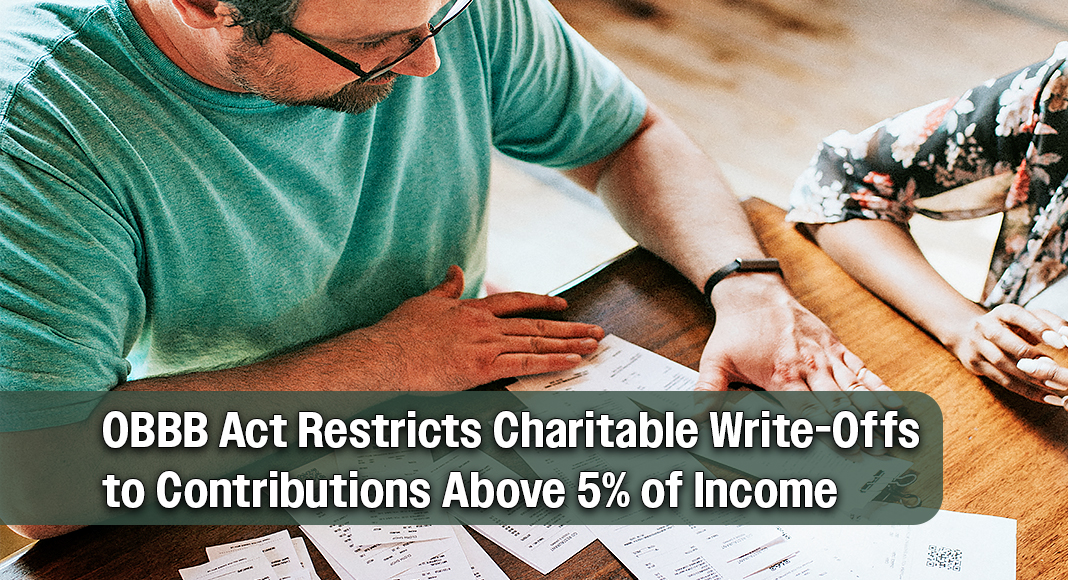
Mega Doctor News
Texas Border Business / Mega Doctor News
The “One, Big, Beautiful Bill Act” (OBBB), signed into law on July 4, 2025, introduces a significant change for taxpayers who itemize deductions and give to charity. The law states that “effective for years after 2025, for taxpayers who itemize non-business deductions, only contributions over 5% of adjusted gross income will count towards the deduction for charitable contributions.”
In plain terms, this means that taxpayers who itemize can no longer deduct every dollar they donate. Instead, the first 5 percent of their income given to charity will not count. Only amounts above that threshold are deductible. For example, if a taxpayer earns $100,000 and donates $7,000, the first $5,000 (equal to 5 percent of income) does not qualify for a deduction. Only the remaining $2,000 can be written off.
Before this law, charitable contributions were deductible subject to percentage caps based on income, but there was no minimum threshold. For many years, cash donations could be deducted up to 60 percent of adjusted gross income, with lower caps for non-cash contributions. The new rule adds barrier by creating what lawmakers call a “floor.”
The legislation specifies that this new rule “can only be carried forward if total contributions for a year are limited by the overall cap (e.g., 60% of adjusted gross income annual cap on cash contributions).” In other words, if a taxpayer gives more than the allowable annual cap, they may carry forward the excess, but the first 5 percent of income given each year still cannot be carried forward.
This change has significant implications for taxpayers who regularly make smaller contributions. A household with adjusted gross income of $80,000 would need to donate at least $4,000 before receiving any federal tax benefit. A family with $200,000 of income would need to give $10,000 before a deduction begins to apply.
Critics of the measure argue that it may discourage charitable giving, especially among middle-income households that make consistent but moderate donations. Under the old rules, those contributions, when itemized, could reduce taxable income. Now, they must surpass a relatively high floor before any tax advantage is realized.
Supporters of the change point out that many taxpayers take the standard deduction and do not itemize, meaning their smaller contributions already did not produce a federal tax benefit. They argue that limiting deductions for itemizers will simplify the system and focus tax advantages on larger charitable commitments.
The OBBB Act’s charitable provisions work in tandem with other changes. While non-itemizers will, for the first time in years, be allowed to deduct up to $1,000 (single) or $2,000 (joint) for donations, itemizers must now contend with this 5 percent floor. Together, these measures shift how the tax code rewards giving.
For donors and organizations alike, the effect of the new floor remains to be seen. What is clear is that beginning in 2026, charitable contributions will no longer be fully deductible for itemizing taxpayers. As the law states plainly, “only contributions over 5% of adjusted gross income will count towards deduction.”
See related stories:










